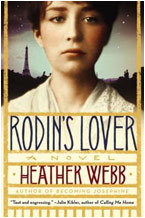It’s Wednesday–time to welcome our resident summer publishing lawyer back to Between the Sheets. Leave your burning publishing questions in the comments and Susan Spann will answer them in next week’s post. Added bonus–all commenters in June and July go into the pot for a drawing to win a signed copy of CLAWS OF THE CAT, Susan’s novel releasing from Minotaur July 16th.
Today’s Ask #PubLaw question follows up on last week’s trademarks in fiction post by asking:
In a work of fiction where the main character is a sportswriter, is it OK to use real teams/players/game results from the time if other parts of the story incorporate actual people and events? Or would it just be a case where licensing would need to be requested?
This is a great question, and an important one because books about sports are popular and on the rise.
THE SHORT ANSWER
I’d recommend getting permission before using a real sports team or real sports figures as a focus, or even a substantial part of the novel. If permission can’t be obtained, then I’d go with fictitious figures and teams instead.
THE LONGER ANSWER
I’d probably recommend a fictitious team anyway, if the story can be written without real ones, because a fictitious team extends the novel’s “relatable life” where readers are concerned.
HERE’S WHY
Football fans may know who played in the January 2013 Superbowl, or that it was Superbowl XLVII and played in New Orleans. Ravens fans will surely remember the outcome. But how many people will remember that five years from now? Or ten? Die-hard Ravens fans may remember, but ordinary people? Nope.
And the key to writing success is appealing to the broadest group of readers possible.
A certain amount of “real team” use is allowed under the Fair Use doctrine, especially if you’re using actual games the teams really played and not deviating from the facts. Facts aren’t subject to copyright protection or limitation (though the team names are usually trademarked, and fair use in trademark falls under a slightly different set of rules).
That said, the more substantial your use, the more likelihood that the team will want control or licensing permission–because, as I mentioned, sports team names are trademarked and those trademarks have high commercial value. The team(s) might claim your book acquired value as a result of using their trademark and therefore claim trademark infringement or unfair use if you use the team substantially in your novel.
By contrast, no one can claim wrongful use of a trademark if you make up a team from scratch. Fictitious teams also put every reader on an even footing. No fans get their feelings hurt because you didn’t use a favored team, and no one refuses to buy your book because “Team X is Dumb.” Also, using a fictitious team allows you to shape the games and the results in a way that works for your story, rather than needing to shoehorn plot around the games’ results.
At the end of the day, few readers care whether your character writes about real teams or the fictitious Hoboken Hobgoblins – it’s the sportswriter’s story they care about. Since that’s the case, it’s often wiser to create the teams, as well as the protagonist, from scratch. If you can’t do that, however, and you want to use professional teams in any substantial way, I’d recommend obtaining permission first.
Thank you to Heather for letting me to post Ask #PubLaw here today!
Remember: if you leave a comment on this, or any Ask #PubLaw post during June 2013, you’ll be entered in a drawing to win a signed ARC of my upcoming mystery novel, CLAWS OF THE CAT!
[And the contest legalese-sorry, can’t help it, I’m a lawyer: One entry per household per week. Total of one prize will be awarded, by random drawing, from all eligible comments across all Ask #PubLaw posts in the month of June 2013. Contest ends at midnight Pacific Time, June 30, 2013. Open to residents of the U.S. and Canada only. Odds of winning vary. No purchase necessary. Void where prohibited by law.
ASK YOUR OWN PUBLISHING QUESTIONS
Leave a comment with your question(s) (all publishing and intellectual property issues are welcome!). Susan will be delighted to answer them in future Ask #PubLaw posts!
 ABOUT SUSAN SPANN
ABOUT SUSAN SPANN
Susan is a publishing attorney and historical mystery author. Her debut novel CLAWS OF THE CAT (Minotaur) releases July 16, 2013. When not writing or representing clients, Susan enjoys traditional archery, martial arts, horseback riding, online gaming, and raising seahorses and rare corals in her highly distracting marine aquarium. She still consumes books – almost as avidly as spicy Thai dinners. Susan lives in Sacramento with her husband, son, three cats, one bird, and a multitude of assorted aquatic creatures. She is a member of Mystery Writers of America, the Historical Novel Society and the Rocky Mountain Fiction Writers’ Association and is represented by literary agent Sandra Bond of Bond Literary Agency. –
5 Comments
Join the conversation and post a comment.















Interesting info and insight. Thank you!
I was wondering about this question while plotting a new WIP. I want to mention the MC wearing her college team’s jersey and I was wondering if I should pick a real team/town or make one up. Thanks for the info!
Patchi: you’re probably fine with the MC wearing a real team sweatshirt and having a “real” favorite team if the detail is incidental to her character rather than the focus of the story.
If my dealings with the Colts from my past life as a journalist are any indication, NFL teams are control freaks when it comes to image, so getting permission might not be that easy. Or they might make demands. Thanks for the great post, Susan.
Very true, Kim. Sports teams are highly aggressive when it comes to use of their logos, so although a mention (or two) of a favorite “X team” sweatshirt is probably fine (because it promotes the team in a good light) much more than that will probably be expensive.